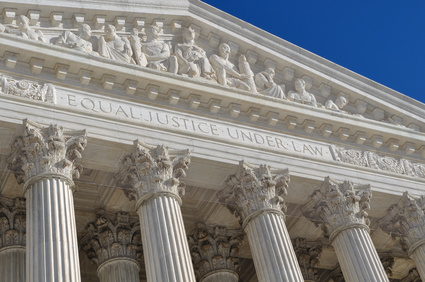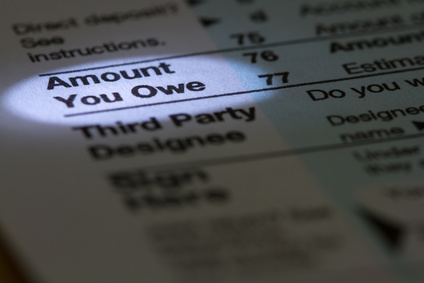A debt buying company’s letter to collect a debt subject to the defense of an expired limitations period was found to violate the federal Fair Debt Collection Practices Act because it failed to disclose that 1) a payment or promise can revive the limitations period; and, 2) the law limits or prohibits the debt collector from suing to collect the debt. The U.S. Court of Appeals for the Seventh Circuit reached this decision even though the letter stated: “Because of the age of your debt, we will not sue you for it and we will not report it to any…
Posts published in “FDCPA”
Fair Debt Collection Practices Act
The U.S. Court of Appeals for the Second Circuit recently reinstated a complaint alleging a debt collector violated the federal Fair Debt Collection Practices Act when it sent a payoff statement containing unaccrued fees and costs without providing any information as to how those fees were calculated or any basis for those fees and costs. In so ruling, the Second Circuit was careful to note that a payoff statement may contain estimated fees and costs if the information in the statement would allow the least sophisticated consumer to determine the minimum amount she owed at the time of the notice,…
The U.S. Court of Appeals for the Ninth Circuit recently reversed the dismissal of a Fair Debt Collection Practices Act claim arising out of a non-judicial foreclosure. The Ninth Circuit ruled that section 1692f(6) of the FDCPA applies to non-judicial foreclosure activity. A copy of the opinion in Dale Dowers v. Nationstar Mortgage, LLC is available at: Link to Opinion. Two borrowers refinanced a loan secured by their home and executed a note and deed of trust. The lender assigned the note to a purchaser of the subject loan (the “loan owner”). Later, the lender assigned the deed of trust…
The Kentucky Supreme Court recently ruled that a debt buying company may not charge or collect statutory interest under section 360.010 of the Kentucky Revised Statutes on an account it acquired after it was charged off by the original creditor. Carol Harrell’s credit card account was charged off by the original creditor on Jan. 18, 2011 and was sold to a debt buying company in November of the same year. In a collection lawsuit brought in April 2012, the debt buying company sought judgment for the charged-off balance plus statutory interest from the date of charge off. In response, Harrell…
The Ninth Circuit Court of Appeals rejected a class action settlement as “worthless” for absent class members in a recent federal Fair Debt Collection Practices Act case. The decision represents another addition to the growing list of FDCPA and other consumer-related class action settlements facing tough scrutiny where absent class members receive minimal or no monetary relief in proportion to their release of future claims, while class representatives and their counsel receive handsome rewards. A copy of the opinion in Koby v. ARS National Services, Inc. is available at: Link to Opinion. The case arose from a voicemail message seeking…
The District Court of Appeal of Florida, Second District, recently held that section 559.715 of the Florida Consumer Collection Practices Act (FCCPA) does not create a condition precedent that an assignee of a mortgage loan debt must give notice to the consumer 30 days before filing an action seeking a deficiency judgment. A copy of the opinion in Dyck O’Neal, Inc. v. Kami Ward is available at: Link to Opinion. A borrower defaulted on her mortgage loan and the property was foreclosed upon and sold at a foreclosure sale. The judgment was then assigned to a debt collector, who filed…
The U.S. Court of Appeals for the Ninth Circuit recently held that a notice regarding overdue homeowners association (HOA) assessments contained language that overshadowed and conflicted with the homeowner’s federal Fair Debt Collection Practices Act debt validation rights. Limiting the scope of its ruling in Ho v. ReconTrust Co., NA, 840 F.3d 618, 620 (9th Cir. 2016), the Court rejected the debt collector’s argument that in sending the notice regarding overdue HOA assessments, it merely sought to perfect a security interest and was therefore subject only to the limitations under 15 U.S.C. § 1692f(6). A copy of the opinion in…
SCOTUS to Decide Whether Entity is FDCPA ‘Debt Collector’ Merely Because It Purchases Defaulted Debt

The Supreme Court of the United States recently decided that it will review the decision of the U.S. Court of Appeals for the Fourth Circuit in Henson v. Santander Consumer USA, Inc. As you may recall from our prior update, the U.S. Court of Appeals for the Fourth Circuit held that the fact that a debt is in default at the time it is purchased by an entity does not necessarily make that entity a “debt collector” subject to the federal Fair Debt Collection Practices Act (FDCPA), 15 U.S.C. § 1692 et seq. A link to the docket is available…
The U.S. Supreme Court heard oral argument Tuesday in Midland Funding v. Johnson. A primary issue before the Court is whether the federal Fair Debt Collection Practices Act is violated by the filing in a Chapter 13 bankruptcy case of a proof of claim representing a debt subject to an expired limitations period. The case originated from the Eleventh Circuit Court of Appeals, which along with its earlier decision in Crawford v. LVNV, held the FDCPA is violated in those instances. Every other Circuit Court of Appeals has since found otherwise. The oral argument indicated that at least six justices…
The U.S. District Court for the Middle District of Florida recently granted in part a mortgage loan servicer’s motion to dismiss a consumer borrower’s claims under the federal Fair Debt Collection Practices Act (FDCPA), the Florida Consumer Collection Practices Act (FCCPA), the Real Estate Settlement Procedures Act (RESPA), the federal Fair Credit Reporting Act (FCRA), and the federal Declaratory Judgment Act (DJA), holding: (a) the borrower’s complaint stated claims under the FDCPA and FCCPA because the allegations raised a plausible inference that the servicer knew the borrower was represented by counsel; (b) the borrower’s allegations that the statute of limitations…
A New Jersey federal District Court recently granted a debt collector’s motion for summary judgment in a claim arising from service fees where the collection account at issue did not belong to the debtor. A copy of the opinion in Benali v. AFNI is available at: Link to Opinion. The plaintiff received a dunning letter from a collector allowing him to make payments by phone or online subject to a $4.95 processing fee. Similar payments made by mail would not be subject to the processing fee. Although the account at issue did not belong to him, the plaintiff filed suit…
The U.S. District Court for the District of New Jersey recently ruled that 18 telephone calls to a consumer over a two-week period – of which 17 were unanswered, and the last where the consumer hung up – did not violate the federal Fair Debt Collection Practices Act (FDCPA). In so ruling, the Court also affirmed that under the federal Telephone Consumer Protection Act (TCPA), persons who knowingly release their phone numbers have in effect given their invitation or permission to be called at the number which they have given, absent instructions to the contrary. A copy of the opinion…











